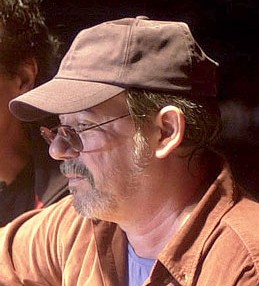San Antonio de los Baños (Cuba), 1946
By Alberto Ikeda

Composer and guitarist Silvio Rodríguez Irratia was one of the pioneers of an important musical movement that emerged in Cuba in the late 1960s, known as Nueva Trova. This movement gained international recognition and included other prominent figures of Cuban popular music, such as Pablo Milanés, Noel Nicola, Vicente Feliú, and others.
Born into a peasant family, Rodríguez began studying piano at the age of seven but switched to guitar when he joined the military service between 1964 and 1967. Although he had begun composing music earlier, it was during this period that he started to write more systematically, participating in festivals organized by the Army, encouraged by his fellow soldiers. After his military service, he made an appearance on the television program Música y Estrellas, which helped him gain recognition among the Cuban public. He continued to participate in various television and radio programs and also held his first public recital.
In 1968, he became actively involved in the Centro de la Canción Protesta, organized by the cultural institution Casa de las Américas, while also performing on television. The following year, he performed at the Instituto Cubano de Artes e Industria Cinematográficas (ICAIC), which was established in 1969, and participated in the Grupo de Experimentación Sonora (GES). There, he recorded his first album.
The year 1972 marked his performances in what was then the German Democratic Republic (GDR) and in Chile, the first Latin American country where he performed alongside Pablo Milanés and Noel Nicola. This began his international performance phase, which expanded in the following years to include Mexico, the Dominican Republic, the Soviet Union, Angola, Spain, France, Italy, and the United States.
His musical output is prodigious, though he has not achieved widespread commercial success. By the early 1980s, his compositions numbered over five hundred works, including songs for film soundtracks and dozens of albums. The themes of his music are varied, covering lyrical and romantic subjects as well as social and political issues. Rodríguez is genuinely concerned about the human condition and committed to the Cuban cause, to the extent that he also served as an elected deputy. He defines himself as a troubadour, a “chronicler of his time and a champion of the [socialist] cause of the future.” In addition to his creative work, recordings, numerous performances, and his role as a deputy, he runs a recording studio that he founded, named Ojalá (the title of one of his songs).


